How these two tech startups came together to raise M’sia as a leader in the regional AI scene
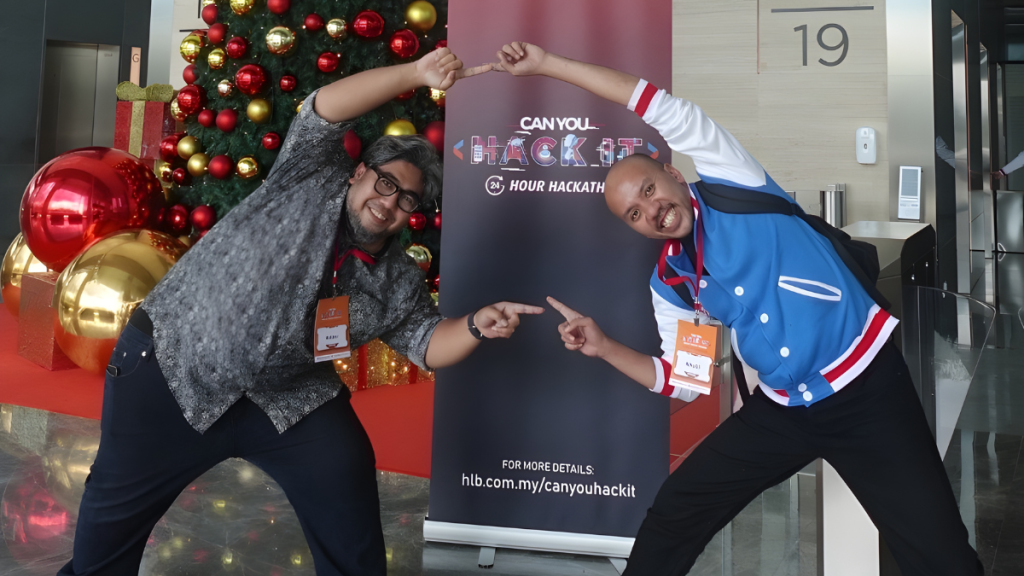
[This is a sponsored article with Cyberview.]
Early this year, startup tech companies Mesolitica and Lekir Tech signed a Memorandum of Understanding, kickstarting a collaboration that hopes to bolster the local AI scene, and advancing Malaysia’s tech ambition of becoming a leading innovation-driven economy by 2030.
Since then, with Mesolitica pioneering the localisation of AI language models and Cyberjaya-based Lekir Tech creating “AI Agents” (AI-powered systems designed to handle repetitive tasks), the duo of companies has made great strides through this collaboration.
From “developing AI Agents as an ultimate customer service assistant,” to “building a Malaysian Language AI Agent Centric system that works across industries,” the companies are striving to “create something that not only understands but excels in serving Malaysians in our unique languages and dialects,” said Azizul Othman, co-founder and CEO of Lekir Tech in a Facebook post.
Dictionary time: AI agents are software systems that use AI to pursue goals and complete tasks on behalf of users. They show reasoning, planning, and memory and have a level of autonomy to make decisions, learn, and adapt.
But who was it that played matchmaker?
Enter Cyberview
Since their beginnings as the landowner of Cyberjaya, Cyberview has gone on to develop the city as a tech ecosystem for creators and innovators, before being given the mandate by the government to become a Tech Hub Developer in 2019.
An effort to grow this ecosystem included launching the Cyberview Living Lab® Accelerator programme (CLLA) in 2013, with the aim of providing tech entrepreneurs with support in the areas of human capital, funding, mentorship, infrastructure, as well as market access.
As of 2025, CLLA has nurtured 129 startups, raised over RM264 million in investments, generated over RM837 million in revenue, and created more than 1,500 jobs.
Back in 2023, CLLA brought together eight startups, offering them a five-month programme that supported the development, piloting, and commercialising of their products and solutions. The goal being to accelerate these companies into achieving a product-market-fit.
Through the programme, two of these companies discovered that they held a natural synergy, and went on to elevate Malaysia’s AI capabilities together.
Teaching machines to understand Malay
That was the inspiration that kickstarted Mesolitica’s journey in October 2018.
And so, with a RM50,000 investment from WatchTower & Friends and equity crowdfunding, along with bootstrapping with sponsorships from NVIDIA, Google, Microsoft and Amazon Web Services (AWS) for cloud infrastructure, Mesolitica was born with the vision of building an AI language for Malaysia.
Today, their flagship offering is MaLLaM (Malaysia Large Language Model), a language model enabled by the democratisation of core AI technologies via the open-source community.
Through this, Mesolitica has released over 900 language models since its inception, and they’re continuing to enhance MaLLaM’s linguistic capabilities across all Malaysian languages, be it national, dialectal, ethnic, or colloquial through collaborations with private data holders and governmental bodies.
“Mesolitica’s affiliation with the Cyberview brand has provided us with enhanced credibility, thereby facilitating more confident engagement with governmental bodies, particularly those located in Putrajaya.”
“Being CLLA alumni enhances our standing within the local startup ecosystem and facilitates meaningful collaborations,” said Khalil Nooh, the CEO and co-founder of Mesolitica.
Indeed, the programme has raised the company greatly, allowing for close engagements with NVIDIA in early 2023 and AWS in mid-2024.
And of course, their collaboration with Lekir Tech.
Making AI accessible
“Lekir Tech was founded with a mission to democratise AI for businesses of all sizes, especially SMEs. Our journey began with a vision: to develop AI Agent Digital Workers that go beyond automation and truly collaborate with humans,” said founders Azizul and Al Khan Abdul Gani.
With an initial seed capital of approximately RM250,000, primarily through internal founder funds and early revenue from consultancy services, Lekir Tech aimed to satisfy the need for AI-powered digital workers capable of handling repetitive tasks across different departments. This includes data reconciliation, reporting, customer support, and compliance checks.
“Unlike traditional automation tools or simple chatbots, our platform Assistnify brings together multiple AI agents that can actually communicate with each other, understand complex workflows, learn from your data, be integrated into your legacy system, and work alongside your team in real time.”
It’s like hiring a digital team that never sleeps and never gets tired.
Although this idea may sound appealing to many business owners, Lekir Tech’s founders added that they still faced challenges in convincing traditional businesses to rely on AI for their day-to-day operations.
Through CLLA, Lekir Tech was able to further build their flagship offering, strengthening their AI agent platform architecture and accelerating product-market fit validation.
“CLLA was a game-changer for Lekir Tech. It gave us access to mentorship, funding opportunities, and most importantly, strategic introductions within the industry. We gained valuable market insights and built key partnerships, such as the one with Mesolitica, that helped us move to market faster.”
Now, about six years in the game, the co-founders shared that Lekir Tech generates a healthy annual revenue, with a month-over-month growth of around 12-15%. It’s largely driven by recurring Software-as-a-Service (SaaS) subscriptions and AI agent project deployments.
And they’re not stopping here.
Keeping the pace, hand-in-hand
Looking forward, the duo of companies have big dreams in not just uplifting the AI scene in Malaysia, but also setting up the country as a leader in the regional AI industry by 2030, as planned in the National AI roadmap.
According to the digital ministry, AI is projected to contribute approximately US$115 billion (RM530 billion) to Malaysia’s economy in five years; so it’s no wonder that initiatives like the Strategic Investment Fund and the National Start-up Single Window platform were created to support the local AI ecosystem.
“We are creating a supportive ecosystem for innovation, connecting research institutions, universities and the private sector to accelerate the development of AI technologies,” said Science, Technology and Innovation (MOSTI) Minister Chang Lih Kang to The Malaysian Reserve.
Indeed, Mesolitica and Lekir Tech’s stories are a reminder of the fruit that can be borne through meaningful partnerships, and they serve as a testament to the CLLA initiative and MOSTI’s commitment..
“CLLA has allowed innovators to leverage the infrastructure and facilities offered throughout the city as a testbed for their innovations—a real-world environment for piloting emerging technologies for Cyberjaya,” said Shafinaz Salim, Head of Technology Hub Development, Cyberview.
And they’re continuing to do so with their latest series of it, the Cyberview Living Lab® Accelerator Cohort 20.
Featured Image Credit: Lekir Tech
These smart healthcare companies unveil why they chose Cyberjaya as their operations base
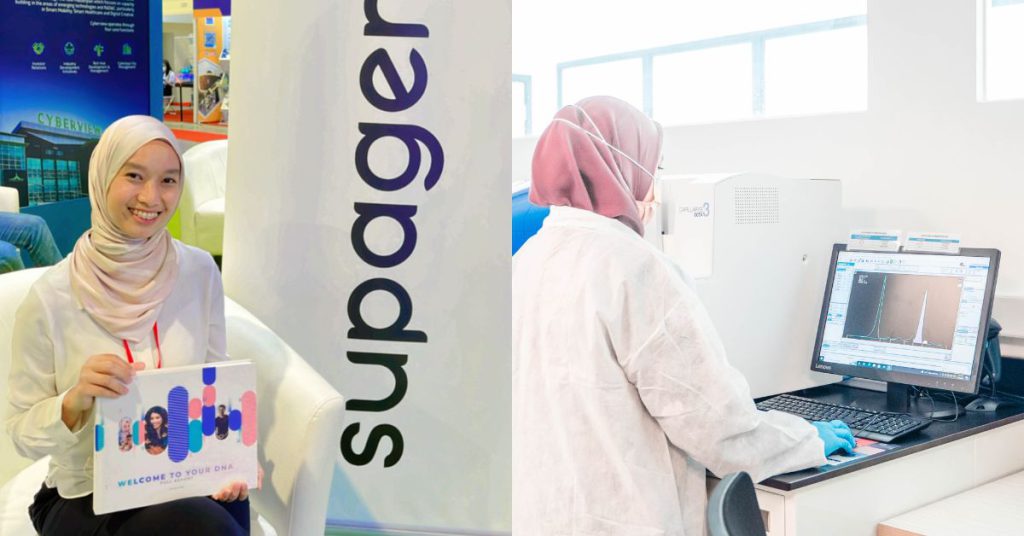
[This is a sponsored article with Cyberview.]
The healthtech industry is booming globally, and Malaysia is no exception, with the country’s digital health market projected to grow by 11.15% (2022-2027). Demands for digital health solutions have been spurred on by a thirst for innovation, and the pandemic.
Local and foreign startups offering solutions to address both curative, and preventative healthcare have curated more targeted and personalised medicine for individual patients.
Noticing the need healthtech startups have for a conducive R&D and commercialisation environment, Cyberview is stepping in as an ecosystem builder for Cyberjaya. The tech hub developer plays a critical role in supporting the growth of such companies in this space.
To highlight some startups with such solutions using Cyberjaya as their operations base, we spoke to Supagene.Asia (Supagene) and Hematogenix in the smart healthcare focus area.
Preventative healthcare through DNA testing
Supagene’s team believe that knowing your genetics can be likened to finding the missing puzzle piece in your life.
“Some people would experience a condition that they themselves or even the doctors can’t explain,” co-founder Nura Samsuddin elaborated. “That’s when DNA tests are needed.”
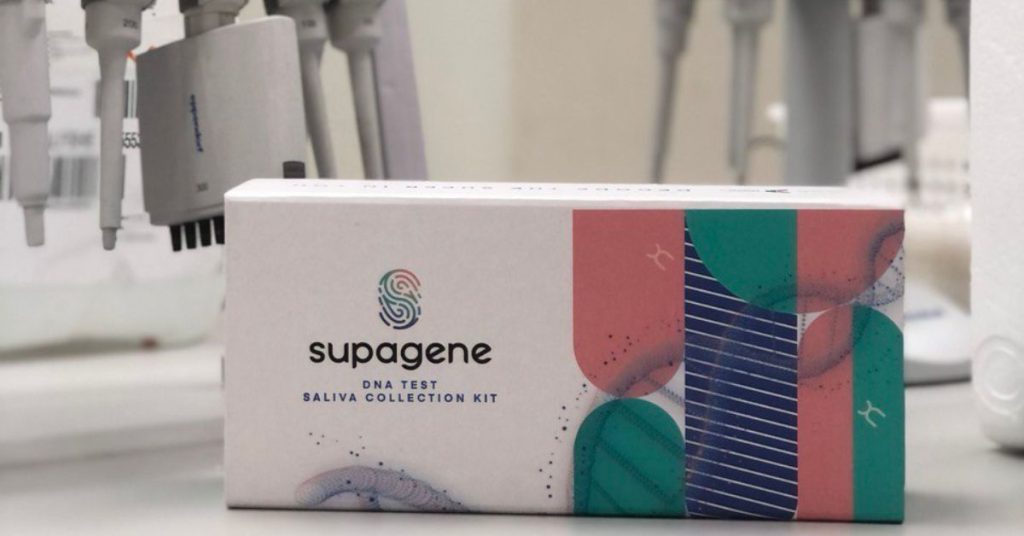
On top of giving you insights into your predispositions, DNA tests can also provide answers to inexplicable problems about your disease risk, diet, exercise, mental health, and fertility problems.
Supagene differs from other DNA testing companies in the market by focusing on health-based data sets from Asian populations. This is so that the results for Malaysian and SEA customers are more accurate.
From brief research, although other companies contain Asian data sets as well, they mostly focus on heritage-based genetic testing.
The Malaysian startup also provides a full post-testing actionable programme. This gives customers tailored, practical solutions to take charge of their health, paired with professional support from doctors, genetic counsellors, dietitians, and fitness coaches.
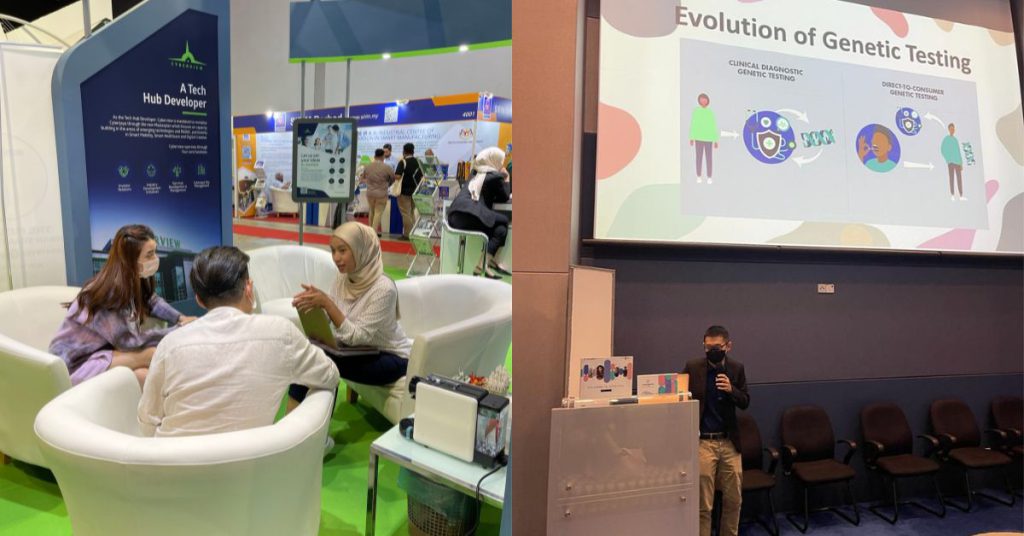
Launched in 2019, Supagene chose Cyberjaya as its hub for DNA research and reporting due to its complete and well-developed ecosystem for smart health activities like R&D and commercialisation.
Nura shared that operating the company’s clinical research in Cyberjaya has enabled Supagene to attain more samples from the city’s niche and segmented population.
For example, Supagene was able to work with Cyberview in a corporate DNA testing programme. Here, corporate employees in Cyberjaya could learn about disease prevention and take part in a personalised wellness programme based on their individual genetic information.
This, Nura added, is in line with both Supagene’s and Cyberview’s vision: to transform Cyberjaya into an empowered smart city.
With the help of Cyberview’s ecosystem and network, Supagene has managed to partner with Malaysian panel clinics to make its DNA test kits more accessible to the public. Furthermore, the company is setting sights on regional expansions to Indonesia, Thailand, and Vietnam.
In terms of expanding their services, Supagene’s team is looking to integrate more health screening tests with their current DNA tests. Once this is developed, they hope to roll out more in-depth personalised programmes and treatments to market.
Specifying treatments to the exact cancer
When it comes to finding treatments for life-threatening diseases like cancer, time is of the essence. Hematogenix is a healthtech company aiming to speed up the diagnostic process, to help get a patient the proper treatments faster.
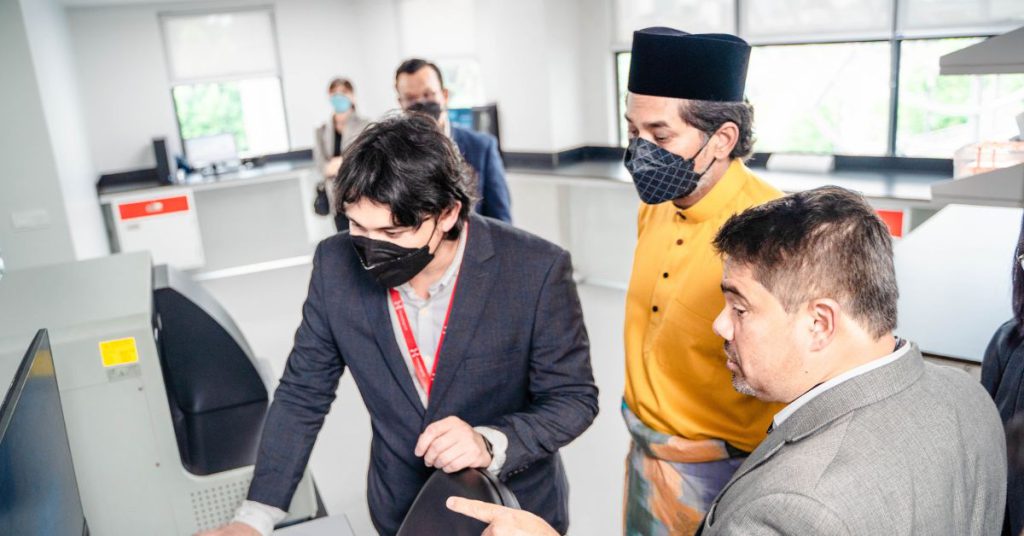
The company works with doctors in identifying the exact type of cancer a patient has, based on biomarkers present in a patient’s blood, bone marrow, or tissue biopsy samples.
Once the exact cancer has been identified from Hematogenix’s extensive testing, physicians will get to choose the appropriate medicine that can target the patient’s cancer.
Hematogenix has been in operation in the US since 2007 and expanded to Malaysia in June 2021.
Dr Khairul Faizi Khalid, Hematogenix’s Asia Pacific Operations Manager, shared that Malaysia was chosen for the startup’s SEA expansion due to the well-established clinical research ecosystem thanks to the Ministry of Health (MOH).
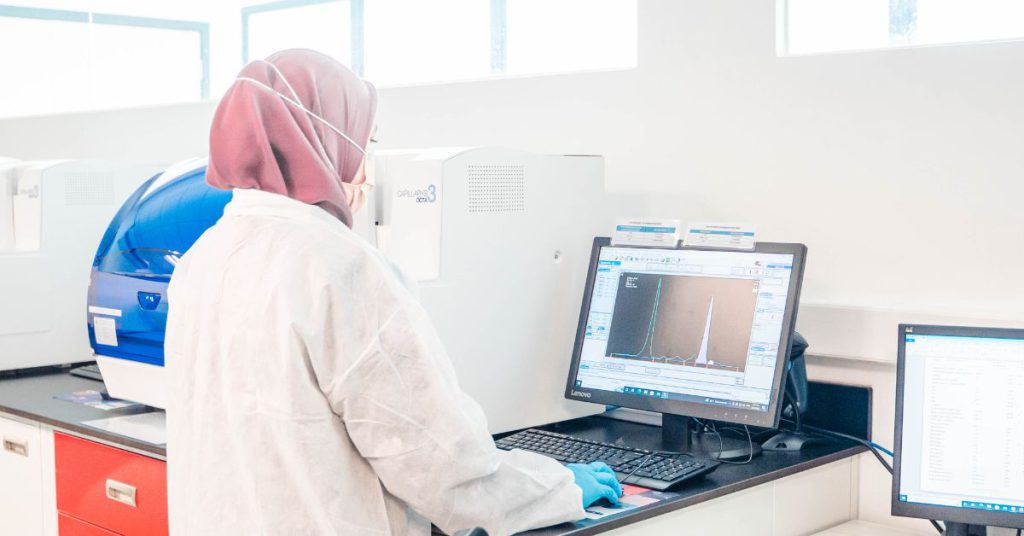
On the reason it selected Cyberjaya as its research hub, Dr Khairul said that it has a lot to do with the logistics of transporting biopsy samples, which need to arrive at Hematogenix within 72 hours of collection.
“Cyberjaya is near to the National Cancer Institute (IKN), Putrajaya, and other hospitals with cancer facilities within Klang Valley, making it accessible to receive samples within just hours after collection,” Dr Khairul explained.
KLIA and major highways are also close by, which is strategic when transporting samples from health institutions around Malaysia, along with other Asian countries.
With the establishment of Hematogenix’s Asia Pacific presence in Malaysia, all clinical trial samples from Asia can now be sent to Malaysia for testing. This could help shorten the waiting time for diagnosis, and subsequently treatment.
In addition, he added that Cyberjaya’s infrastructure is well planned with a double feeder electricity supply, and high-speed internet access. All these are necessary for Hematogenix’s operations.
Hematogenix believes that its operations in Cyberjaya will open new opportunities and foreign investments for pharmaceutical companies in Asia and Malaysia to conduct clinical trials.
Likewise, patients from Asia Pacific will also get direct access to global clinical trials and ground-breaking novel treatments.
-//-
With more specialised and dedicated support from Cyberview, local and global startups of any maturity level have better opportunities to scale and subsequently, commercialise.
The establishment of healthtech companies like Hematogenix and Supagene in Malaysia can directly contribute towards our country’s revenue, creating high-income job opportunities for the local talent pool within the healthcare industry.
Such companies can also expose local experts to technologies in the clinical trial field to develop more research and innovations for future healthcare solutions.
Also Read: For RM210/hr, international teachers can prep M’sian students for all major exams
Featured Image Credit: Supagene.Asia / Hematogenix Asia Pacific
Vulcan Post Explores: Interesting places in Cyberjaya that aren’t just about business
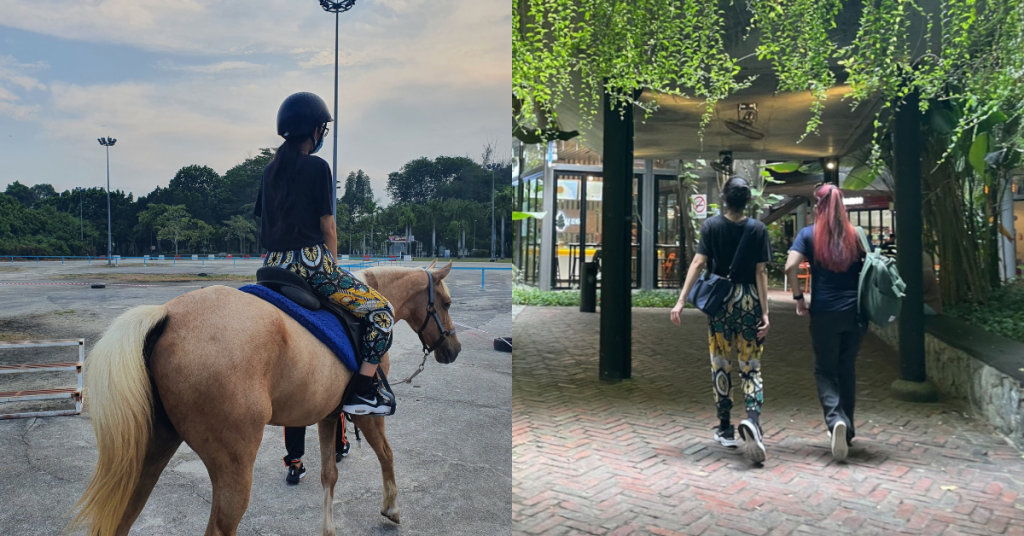
[This is a sponsored article with Cyberview.]
When I think of Cyberjaya, the first thing that comes to mind is how it’s often considered the technological hub of Malaysia, filled with tech-savvy startups, entrepreneurs, and high-tech facilities at every corner.
But it is also a lively city with more to offer than just that, according to what we’ve been told by Cyberview, the tech hub developer of Cyberjaya.
To find out for ourselves what they meant, we did our research and shortlisted a few places of interest (with the help of Cyberview) to pay a quick visit to, excited to see what the city is all about.
A school with a history spanning nearly 500 years

For our very first location, we went to King Henry VIII College, a school with a history that spans nearly 500 years. What makes this college unique is that it is the first sister school of Christ College in Brecon, UK, founded by King Henry VIII himself in 1541.
According to a representative guiding our tour, the lobby inside and the building’s facade are exact replicas of their sister school located in Wales.

The school provides Cambridge Assessment International Education to children aged three to 18, and prides itself on how the students are educated in a similar manner at a university.
No matter their age, great importance is placed on honing the students’ independence, outspokenness, and leadership. In turn, this should make their transition to university later in life much smoother.

Here, we saw various clubs like swimming, dancing, robotics, and we were told that the founding and management of many of these clubs are left up to the students, with guidance from teachers.

Throughout the school, we also saw many art pieces and murals on the walls.

Turns out, they were created by the students themselves, a testament to King Henry VIII College’s dedication to nurturing young creatives. (Plus, their art facilities had us mighty envious.)
For many of us who grew up in public schools, the vibe and atmosphere here just felt so different, and it was good to see our younger generations have access to such quality education.

A centre where drone startups take off
Next, we headed towards the Obama Oval, which is part of Cyberview’s Collaboration Campus where we met up with Drone Academy, the first Civil Aviation Authority of Malaysia (CAAM) approved Remote Pilot Training Organisation.
At Drone Academy, training is provided for those keen on becoming a certified remote pilot.

During our time there, they conducted a few flight demonstrations, including take-off and landing of the Matrice 300 RTK, an enterprise-grade drone by DJI mostly used for surveying and agriculture.
It’s capable of flying for 55 minutes, depending on the weather condition.

While we were there, we also spotted something: eMooVit’s autonomous buggy. Of course, we had to take a ride on it.
The route is limited to the vicinity of Obama Oval, which includes Cyberview Corporate Office, Futurise Centre, Axon Children’s Centre, and our next location.

Stops are pre-programmed in the route, so we can choose our destination and the buggy will then autonomously drive itself there.
It was quite surreal to sit in a vehicle with no one controlling the steering wheel, throttle, and brake, yet it managed to navigate itself with ease (most times).

Though it’s supposed to be completely driverless, current regulations require an authorised personnel to be in the driver’s seat in case things go south.
Once the technology matures and all regulatory concerns are addressed, we can expect more self-driving cars with a wider coverage area in the future.
To achieve that, there is a 7KM long self-driving vehicle testing route jointly developed by Futurise and the Ministry of Transport, in order to further the development of autonomous vehicles.
A hotel that emphasises on reusing

With the help of eMoovit, we made our way over to Dash Box.
It’s an accommodation by RIYAZ Hotels and Resorts that repurposed around 40 old containers and turned them into rooms and stores for guests.
I found the concept quite interesting because instead of wasting time and energy melting these containers down and turning them into other products, they repurposed them into a point of attraction.

Unfortunately, we could not see the interior of the container rooms because they were being refurbished, though we did see how they turned some containers into stores, a cigar lounge, and a restaurant.
Other than the container rooms, they have a few regular rooms around the garden and pool. Prices start at RM200 for the studio rooms, while the deluxe rooms with a balcony start from RM300 onwards.

They also have a grand ballroom with a maximum capacity of 250 pax, where guests frequently host weddings, large meetings, parties, and more.
A hub that nurtures more than just startups

After that, we went over to RekaScape, a retail and event space that’s purposefully built for entrepreneurs.
It’s home to TinkerScape, one of the many coworking spaces scattered around Cyberjaya.
They offer permanent desks and private offices, high speed internet powered by Allo, a local internet service provider, and a slide and swings for much needed work breaks.

Next, there’s KidzTech Centre, a learning centre specifically for kids that want to learn more about science, technology, engineering, maths.

Mohd Shukri Bin Muhammad, the programme coordinator highlighted that they teach kids robotics, programming, and Japanese too.
If the kids do well, they will get the opportunity to join international robotic competitions. Previously, they won first runner-up, and champion the year after, against countries like India, Japan, and Taiwan.

They teach kids other skills not easily found in schools too, such as 3D printing, designing, and even using VR technology.
We also dropped by Corte Fino Barber, one of the first tenants when RekaScape first opened in 2019. They remained operational even after the pandemic, showing the business’s resilience with the help of RekaScape.

On Saturdays, RekaScape is home to the Cyberjaya Farmers Market where you can enjoy artisan goods, handmade goods, fresh produce and iconic local foods.

Depending on the season, the Farmers Market can host as many as 40 stalls that all accept QR Pay as a cashless payment method.

A mosque that has more than meets the eye

The Masjid Raja Haji Fi Sabilillah is not your regular masjid. The religious building received a Platinum Rating (the highest type) by the Green Building Index (GBI) as it takes advantage of natural light to illuminate its interior.

There are also a series of solar panels on its roof. These not only generate electricity used by the building, but any excess electricity is then sent back to the power grid, reducing the masjid’s overall carbon emissions.

Another interesting fact we learnt was that it was designed and planned to have an average daytime temperature of 26°C.
In fact, the mosque only turns on the air conditioner for two hours for Friday prayers, as well as special events based on the Islamic Calendar.
A unique retail hub filled with vegetation

For those who enjoy a nice mix of architecture and nature, Tamarind Square, our next stop, offers both.
When we first walked in, I was quite amazed by the many vines hanging off the building’s ledges, planted and maintained meticulously.
It’s a nice place to chill and hangout since it has almost everything you need.

In one day, you could grab a meal at the many restaurants, indulge in a mani pedi or spa session, get coffee or dessert after, buy books at BookXcess, stock up on groceries at Village Grocer, and update your closet with the thrift stores there.
It’s also a very Instagrammable spot, with walkways leading to the rooftop for better cityscape views. While we took our own pictures, we noticed other groups recording Instagram Reels and TikTok videos.

Once we were hungry, we visited Pastribella, one of the many cafes scattered around Tamarind Square, for some meals, drinks, and cakes. Just opposite, there is a board game cafe more suited to those who want some fun while dining.

A kid and adult-friendly place for horse-riding

Once the heat was more tolerable, we took towards the 3S Equestrian Centre. The facility has a number of stables filled with horses and ponies that we could ride on around the facility.
They also offer outrides where we can ride 20KM around Cyberjaya. We did not have enough time to try that out, and it’s only for those familiar with horseback riding.

After a quick chat with the owner, he revealed that we can even rent his horses for events, birthdays, parties, weddings, and convocation photoshoots.
For me, the main highlight there was when the owner let out his cage of about 20 pigeons and let us hand feed them. It was a memorable way to end our time there.
A dog-friendly park with a beautiful lake in the middle

Before we went to our final destination, we took a quick stroll around Taman Tasik Cyberjaya, a large dog-friendly park that’s great for a relaxing walk with family.
The park is so large, there are electric scooters available around it so visitors can move around much easier and faster.

For kids, there’s a mini train ride and playground to keep them entertained, along with an ice cream man for sweet cold treats on a sweltering day (we adults couldn’t resist either).

In terms of sights, occasionally popping out from the blanket of blooming lotus flowers were large fishes and terrapin turtles, all along the bridge leading towards the small island in the middle of the lake.
An open area where you’re spoilt for street food choices

For our final stop, we went to TAPAK, a place that specialises in providing an urban street dining experience.
While there were a few stalls that were not open, there were still quite a number of food choices to choose from. Of those that we ate, we enjoyed the deep-fried mussels and the burgers the most, washing them down with ice-cold drinks.

All the food trucks accept QR Pay, so cashless transactions were not an issue.
-//-
Even though Cyberjaya is often considered as a tech hub, it’s clear that Cyberview is putting in a lot of effort into developing the place to be as accommodating and family-friendly as possible.
Our trip to Cyberjaya definitely showed us a different side of the city that many of us did not expect, and safe to say, we left impressed and better-informed.
If you’d like to spend the day in Cyberjaya too but are wondering about traffic around the city, we notice that driving around was much more relaxing compared to driving in KL, thanks to wider roads and overall less vehicles.
In fact, this trip has even convinced one of my colleagues that she might consider moving out of busy and congested Subang Jaya, into the green, peaceful, and accessible Cyberjaya.
- Find out more about Cyberjaya here.
Also Read: As the first OPPO phone to collab with Hasselblad, is the Find X5 Pro worth the hype?
Affordable DNA testing and AI backed elderly care are already underway in Malaysia
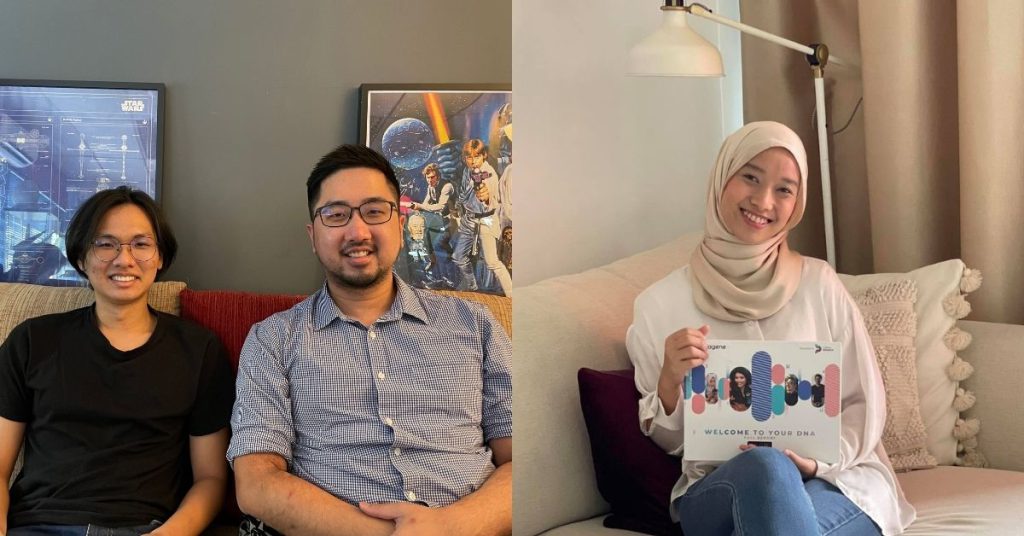
[This is a sponsored article with Cyberview.]
At the state that the world is still in, we’re taking healthcare more seriously than ever. But instead of simply focusing on curative healthcare, more startups are addressing the growing demand for preventative healthcare.
Noticing this trend and more, the Cyberview Living Lab Accelerator (CLLA) pivoted from venture-building to a demand-led model earlier this year that set its sights on these key areas: Financial Technology (FinTech), Internet of Things (IoT), Artificial Intelligence (AI), Retail Tech, and most recently, its alignment with Cyberview’s new tech focus areas i.e. Smart Mobility, Smart Healthcare and Digital Creative.
Note: Cyberview is a Tech Hub Developer, spearheading the development of Cyberjaya.
Shafinaz Salim, Head of Technology Hub Development Division for Cyberview explained, “While the pandemic did not change the focus areas of the programme, many aspects are notably different given the waves of changes brought upon by the pandemic.”
With a greater sense of urgency for digital transformation, her team identified the aforementioned sectors to be among the top industries undergoing transformation and accelerated digital adoption.
To highlight some startups with such solutions in CLLA’s 16th Cohort, we spoke to Supagene.Asia and Guardians AI in the smart healthcare focus area.
For accessible DNA testing
DNA testing provides us with greater clarity and insights into our bodies and health, allowing us to anticipate future issues and take fast preventative measures.
Launched in 2019, Supagene.Asia aims to do just that by bridging the gap in personalised health and wellness with its DNA testing kits.

With other competitors already in the market though, Supagene.Asia believes that it can stand out with more accurate results and an actionable programme.
“One thing very crucial for a consumer to know before they run their DNA test is to know what DNA data set is being used by the test’s company,” Co-Founder Nura Samsuddin told Vulcan Post.
“In Supagene.Asia, we are focusing on Asian population DNA data sets, which give more accurate results to our customers in Malaysia and Southeast Asian regions.”

To add, the startup provides a full post-testing actionable programme which gives tailored, practical solutions to their clients with the support of its partnered health professionals.
Based on brief research for DNA testing options in Malaysia, Supagene.Asia’s kit also appears to be one of the most affordable at RM1,499 for two (RM749.50 per kit).
Typically, you would expect to pay at least RM1,000 for a single kit, even from Malaysian DNA testing companies.
Thus far, Nura reported that the market response to Supagene.Asia’s solutions has been promising, particularly after its pivot to serve B2B clients through partners like KL Sky Clinic, MedKad, and more.
But being a company founded by individuals in science-related backgrounds, Nura admitted that marketing and advertising to consumers was one of their biggest challenges.
When they brought this issue to CLLA, they were strategically connected to experts who then helped them with brand positioning and market direction.
Through CLLA, Supagene.Asia has also been able to network with government agencies like MIDA, MDEC, and TERAJU to draw investments.
For AI-backed elderly care

In the realm of elderly care, Guardians AI was launched in January 2021.
“The impetus for launch was due to the COVID-19 pandemic, [whereby] many nurses and caregivers in the private sector were absorbed into the public sector,” Dr. Goh, Founder and Managing Director of Guardians AI shared.
This resulted in a void in private healthcare, particularly in the less profitable aged care sector, he added. Nursing home operators grew severely short on staff, and many caregivers were exhausted from overwork.
More mistakes began occurring, such as elderly falls in the night going unnoticed until morning. And it wasn’t just the elderly who were impacted, but the exhausted caregivers would then be blamed, leading to low morale and even depression.
With the need for fall monitoring solutions highlighted, Dr. Goh and his team set to work. They came up with a solution that takes away the burden of round-the-clock monitoring and informs caregivers of any incidents involving the elderly.

Using a combination of sensors and trained AI algorithms, the device is placed on the ceiling to monitor top-down these situations: bed exits, falls, and when the patient has been attended to by a caregiver.
Under its pre-set parameters for a mobile, frail elderly person with dementia, the system’s accuracy is believed to be close to 98%.
According to Dr. Goh, Guardians AI’s solution is also more foolproof than wearables for the elderly, as smartwatches and the like are costly, prone to getting lost, require frequent charging, and more.
Their current target customers are nursing homes and elderly receiving care in their own homes. So far, Dr. Goh said the response has been “cautiously positive”.

“‘Cautiously’ because this is a very novel solution in the market and many are not familiar with its use, and ‘positive’ because most of our customers are very intrigued by this solution and hoping some day that the status quo can be changed for the better.”
Once the team has sufficient research evidence on their system’s ability to prevent falls, they will target the hospital market.
For Dr. Goh, one of his biggest challenges running the startup has been uncertainties and money, which can significantly impact one’s psyche. But thanks to his supportive circle, he was able to pull through.
One of these support systems was CLLA and its experienced mentors who reinvigorated Dr. Goh with renewed optimism, plans, and perspectives.
He even shared that Guardians AI has pivoted at least 3 times throughout CLLA in terms of its revenue model, business plan, and operations.
As for his advice on how to really benefit from CLLA?
“Go all out. Leverage the experience, contacts, and expertise of mentors. It would be the best time to scale your business.”
- For more information on the Cyberview Living Lab Accelerator (CLLA) programme, click here.
- Find out what we’ve written about Cyberview in the past here.
Also Read: 22 is not too young for life insurance—making sense of the confusing myths and facts
Featured Image Credit: Guardians AI / Supagene.Asia
These 3 startups envision an AI-driven M’sia through the tech they are pushing in Cyberjaya
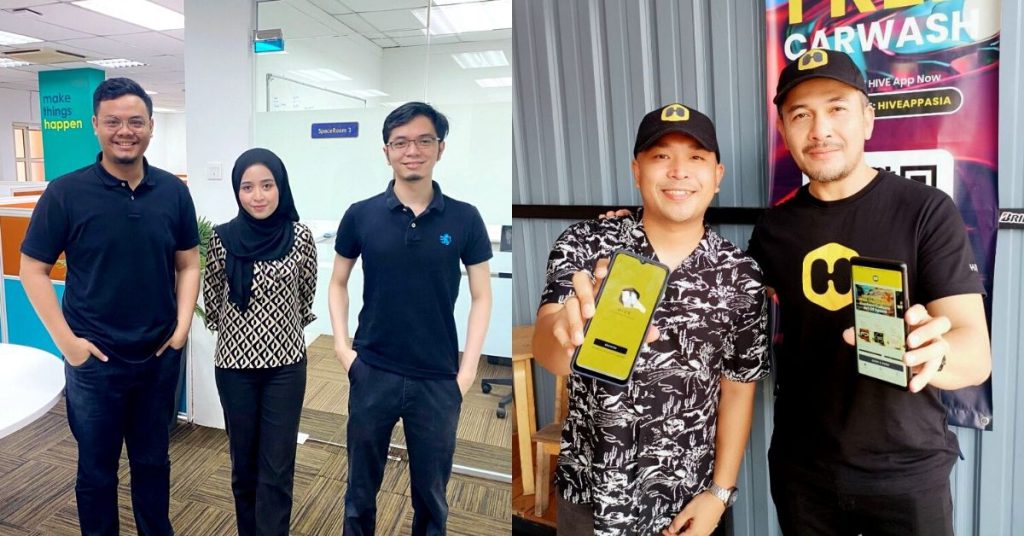
[This is a sponsored article with Cyberview.]
Earlier this year, the Cyberview Living Lab Accelerator (CLLA) pivoted from a Venture-Building Accelerator model to a Demand-Led Accelerator model, adapting to the pandemic’s impact.
Note: Cyberview is a Tech Hub Developer, spearheading the development of Cyberjaya.
This means CLLA now recruits and commercialises startups that can solve specific issues. In order to do that, it has set a focus on several areas: Artificial Intelligence (AI), Retail Tech, and Smart Healthcare.
It recruited 5 startups for its 16th cohort, and we spoke to 3 of them that have embraced AI to propel Malaysia’s development in various sectors.
For a cleaner Malaysia
A smart city should also be a clean city with proper recycling practices. Klean is a company that provides a network of AI-powered reverse vending machines which allow users to deposit empty plastic containers for points (1 container = 10 points).

The collected points will be displayed on the Klean App and users can exchange them for various rewards like Touch ‘n Go eWallet credit, Shell Bonuslink points, and Genting theme park rides.
On the outside, Klean’s reverse vending machines look like any other, but inside their chutes is the company’s proprietary AI system that recognises the type and brand of container.
Based on this data, the machines can either accept or reject the container. But the AI’s value extends past that.

In 2018, The Coca-Cola Company set a goal of collecting and recycling 100% of bottles and cans it sells by 2030. This is part of its commitment to reduce the disposal of its containers in oceans and landfills.
Dato’ Dr Nicholas Boden, co-founder of Klean, told Vulcan Post, “[Klean’s] data is crucial for a company like Coca Cola to be able to know with a very high level of accuracy, how many of their containers our system collects back for them.”
“For other companies, the AI data allows them to publish very reliable environmental, social, and governance (ESG) data around the CO2 saved and the effects of their ESG investments, which is a requirement of listed companies in Malaysia.”
To expand the reach of its machines, Klean is targeting:
- Local councils,
- Retailers like Lotus’s (which operates Tesco Malaysia),
- Petrol stations like Shell and PETRONAS,
- PET bottle manufacturers like Coca Cola & F&N,
- Food delivery companies like Grab, and
- Other multinational companies (MNCs) that are involved directly or indirectly in the production of plastic waste, specifically plastic containers.
Thus far, CLLA has supported Klean in various aspects of its business, from branding to leadership and strategy.
For more efficient e-commerce growth
Meanwhile, all-in-one business platform for SME growth solutions, Dwebly, highlighted the networking opportunities CLLA granted it. The team was able to connect with like-minded people and learn insights from players in other industries too.
The above benefits were among the reasons why Dwebly didn’t hesitate to apply to CLLA when looking for an accelerator to join, other than already being a tenant at CoInnov8 (Cyberview’s coworking space).
CEO Farah described their company as a headless commerce software-as-a-service (SaaS) platform. According to her, this is something new in the market that solves SMEs’ past grievances.
“You either had to choose a custom platform [that] takes longer to develop, or an easy-to-use and instant platform [while] sacrificing customisation and integration ability,” she shared.
Via Dwebly’s headless commerce solutions, SMEs have complete control of their e-commerce websites and don’t have to worry about switching platforms to accommodate their new needs as they scale.

At the moment, Farah shared that Dwebly has yet to properly implement AI in its solutions, but the plan is to create an algorithm that helps business owners predict better campaign strategies, enables precise marketing, efficient product and order management, and other solutions that boost growth while saving costs.
Farah pointed out the importance of AI for Dwebly, saying, “More data insights can really help our clients to plan and adjust their business operations. However, implementing AI by yourself can cost you a ton.”
“That is why we plan to handle our clients’ data and make it available for them at a fraction of the cost.” As of now, Dwebly is still data-gathering for the targeted roll-out of its AI algorithm in 2023.
For transforming a traditional automobile industry
For HIVE, AI is integral to its creation of a beneficial ecosystem for car detailing services in Malaysia.
The HIVE App shows users the closest car detailing partner shops to them, which they can then book through the app itself. Instead of dropping their cars off at the shop, HIVE can also send a valet to do the job for users.
While waiting for their cars to be ready, users can utilise HIVE’s rewards of vouchers and deals from participating F&B brands, and be notified by the app when their car is ready.

Amirol, founder of HIVE shared, “We developed our own AI to capture the domain knowledge of our merchants, who are the experts in this industry. The idea is to ensure our users’ experiences are seamless and [have added] value compared to traditional on-premise experiences.”
“We believe that Malaysians have an active and busy lifestyle, therefore we rely heavily on AI in our customer engagements where we aspire to simplify our users’ journey with us to make it faster, better, and valuable.”
With regards to their experience at CLLA, Amirol shared, “Cyberview and Finnext Capital have delivered beyond our expectations. The team has helped us in opening so many doors in partnership, business, and networking for us to strengthen our position in the market.”
-//-
Thus far, CLLA has raised over RM87 million in investments, generated revenue of more than RM218 million, and created over 550 jobs with partners and programme managers.
Shafinaz Salim, Head of Technology Hub Development Division for Cyberview shared, “The aim of the CLLA programme has always been to provide startups with a platform towards commercialisation, specifically via access to investors for funding and corporates for market access—both of which will enable the cohort to grow further and faster.”
To that end, they have included a suite of tools in CLLA that will give startups a definite competitive advantage for lasting impact in the marketplace, community, and environment.
These AI focused startups still have a way to go before the end of the programme, and Cyberview is well-equipped to support them throughout their journey.
- For more information on the Cyberview Living Lab Accelerator (CLLA) programme, click here.
- Find out what we’ve written about Cyberview in the past here.
Also Read: COVID-19 has driven the need for secure online signatures, which is this M’sian team’s forte
Featured Image Credit: Dwebly / HIVE
Under the new Cyberjaya masterplan, they’re looking for demand-led startups
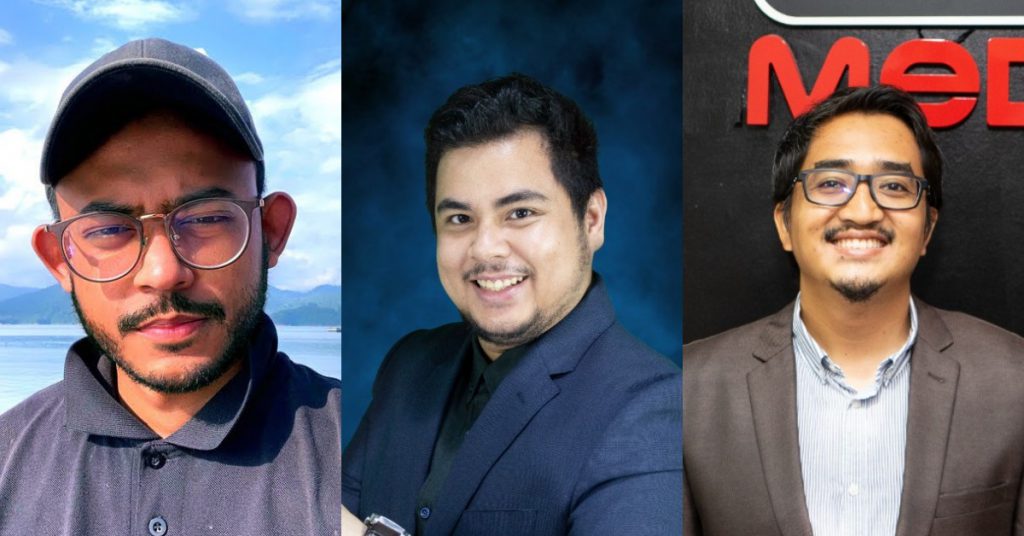
[This is a sponsored article with Cyberview.]
In 2020, the pandemic threw a wrench into the workings of the world, disrupting global economies. Locally, 89.9% of SMEs encountered a drop in sales during the first Movement Control Order (MCO).
The demand for e-commerce and digital services skyrocketed overnight; the nation prioritised from-home solutions, shoving brick-and-mortar shops into an unfavourable position. And if they didn’t adapt to meet the changed demands of consumers, they faced closure.
To support businesses that are pivoting to be demand-focused, accelerators like the Cyberview Living Lab Accelerator (CLLA) found themselves needing to change as well.
Note: Cyberview is a Tech Hub Developer, spearheading the development of Cyberjaya.
Previously, CLLA operated in a Venture-Building Accelerator model, helping startups to be investment-ready, providing networking opportunities, and more. But now, they’ve pivoted to a Demand-Led Accelerator model instead.
Do accelerators even need to evolve?
The Cyberview team detailed the change as a flipped accelerator model, where approved startups tackle specific problems such as infrastructure, transportation and others in Cyberjaya. Basically, CLLA used to help startups solve issues. Now, they’re recruiting startups that can solve the city’s issues instead.
This shift is part of Cyberjaya’s new masterplan, mandated by the government to supercharge the development of the smart city into a Global Technology Hub.
Shafinaz Salim, the Head of the Technology Hub Development Division for Cyberview said the new accelerator model is a response to the ever-changing consumer demands.

Testing products in real-life conditions
Cyberview wants to foster and build up startups that excel in these specific areas: Artificial Intelligence (AI), Fintech, Internet of Things (IoT), Retail Tech, Smart Mobility, Smart Healthcare and Digital Creative.
They hope these startups will come up with disruptive technologies that can bring change to the industry and propel the growth and development of the sector. The end goal is to improve the nation’s digital capability and the livelihoods of Malaysians.
One of the alums of CLLA, MedKad, shares the same vision—to create a solution that is of good quality, affordable and convenient for the community. MedKad is a medical benefit management platform that helps employers and companies to automate the process.

Ezuan Yaacob, the CEO of MedKad said that Cyberjaya’s accepting community is one of the key benefits of the programme. Testing their solutions in real-life situations helped the team to get invaluable experience, which can then translate into better end products for the general public.
To date, MedKad has successfully onboarded 90% of the medical clinics in Cyberjaya, consisting of GP clinics, hospitals, dental and optical centres.
Ezuan shared 2 key traits that demand-led startups should have: to be always aware of current market trends, and also to look out for strategic collaborations.
Going further together
Darween Reza, the CEO of My Conceptual Robotics (MyCRO), another alumni of CLLA, takes collaborations very seriously too. MyCRO is a startup that focuses on R&D solutions, particularly in deep tech and robotics.
“It’s not always a competition. Even for those within the same industry, it’s not about who can do it better or faster all the time,” said Darween.
Giving further context, Shafinaz explained that at CLLA, they value the power of teamwork and collaboration in tackling challenges. After managing 85 startups across 15 cohorts, their programmes are designed to prepare and help the startups build relevant connections that can help them face challenges head-on.

Through CLLA, MyCRO collaborated with several public universities in Cyberjaya to test out one of their projects. They built a cloud-based dashboard that allows a factory owner to track a building’s usage of power, water, and more, without being there physically.
As a startup hand-picked by CLLA, MyCRO is adaptable as well.
To assist Malaysians with the daily routine during the pandemic, they teamed up with University of Malaya to build an IoT smart thermometer that allows users to track their body temperature using an app.
Darween shared that the journey to be a demand-led startup is a difficult one, and they’re still working their way towards that goal. He believes that a company can prosper if there’s demand and support, but what remains the same is that businesses need to be agile and adapt to the current situation.
“I like the idea of fail fast, recover fast. A good entrepreneur must always be on his toes,” said Darween.
Pacing yourself to match your capabilities
A demand-led startup is not built in a day. Nik Muhammad Amin, the CEO of Moovby, believes that any demand-led startup faces a chicken and egg problem. If there’s no demand, there’s no solution—and vice versa.

He said that persistence is key, but you have to start small first. “Over-engineering can be poisonous and can even potentially kill a startup.”
As another player in the smart city, Moovby is a peer-to-peer car-sharing platform with a goal to integrate into the regional transportation system. Nik mentioned a few key benefits of car-sharing: to reduce the environmental impact of commuting, reduce the demand for parking, and increase regional economic activity.
CLLA has taught his team to build a product that fits the market, to better understand acquisition strategies and the importance of marketing and branding for a demand-led startup.
Nik believes that startups should not rush into things just because they want to succeed. “It’s not easy to get users. Make sure you build a strong brand presence and gain trust first.”
-//-
If these sharings from CLLA alumni have caught your interest here are some criteria that you’ll need to fulfil to join the programme:
- Must have a Minimal Viable Product (MVP),
- Be current, relevant, and adaptable to the post-pandemic era,
- Be at a stage that can be sustainable,
- Strong proponents of digitalisation and aligns with Cyberview’s new tech focus areas,
- Have a solid team with strong founders or co-founders.
- For more information on the Cyberview Living Lab Accelerator (CLLA) programme, click here.
- Find out what we’ve written about Cyberview in the past here.
Also Read: AIA’s digital ambition is so massive that they need 500+ tech talents to realise it
Featured Image Credit: Nik Muhammad Amin, CEO of Moovby / Darween Reza, CEO of MyCRO and Ezuan Yaacob, the CEO of MedKad, from Cyberview
This Cyberjaya Accelerator Equipped 75 Startups To Go Commercial In 7 Years And They’re Not Done Yet
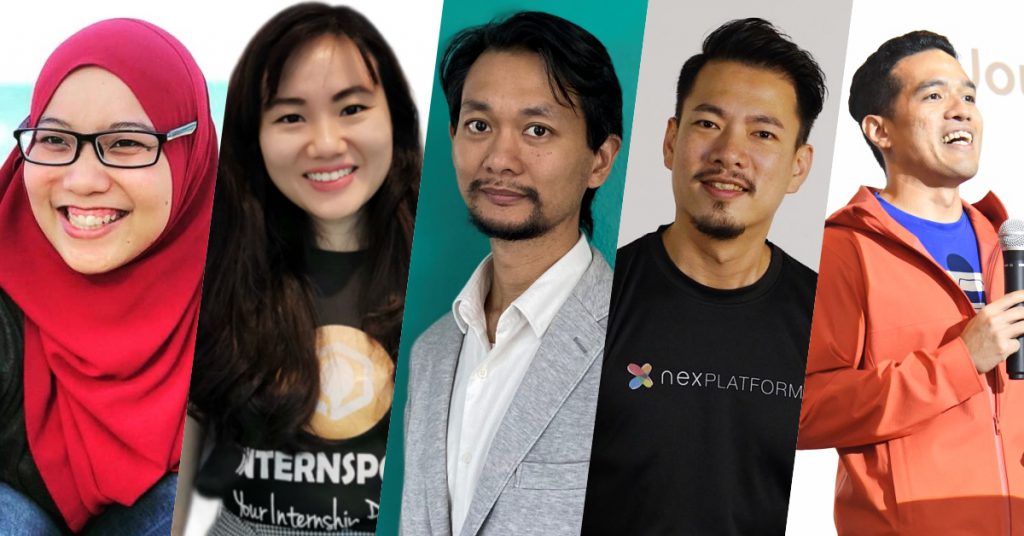
[This is a sponsored article with Cyberview.]
Many would consider Cyberjaya to be Malaysia’s most technologically advanced city and home to countless tech startups.
More than just a city, it’s proven itself to be an innovative hub where things get done, if the sheer number of startups who’ve credited Cyberjaya’s space as a pilot testbed for their offerings is anything to go by.
One of the annual programmes held by the city’s developer itself, Cyberview, is the Cyberview Living Lab Accelerator (CLLA).
It was launched 7 years ago to evolve startups to the next level, and since then, 75 startups have completed the programme and gone on to become full-fledged commercial companies.
Some notable names of its graduates include fintech startup MoneyMatch and lorry rental startup TheLorry, for example. The 5 startups in Cohort 14, their most recent one, are still undergoing CLLA, and at this point in the programme, we wanted to know what they’ve gained from it so far.
The 5 founders we spoke to included:
- Arief Imran, Group CEO and founder of SERV, an app aiding in vehicle ownership and maintenance
- Nur Atiqah, CEO and co-founder of Creative Sandbox, a creative digital academy for kids
- Stephen Lim, Chief Strategy Officer and co-founder of NEXPlatform, a property datatech solutions startup
- Yinxie Chew, CEO and co-founder of Internspoon, an internship platform matching interns to employers
- Zafri Baharuddin, founder of ITXOTIC, a tech startup specialising in automated data analysis and inspection solutions
Polishing Their Pitching Skills
While it is perhaps one of the most important skills to have as a startup founder, pitching isn’t an easy task that comes naturally for many.
Over at CLLA, they know this. Therefore, every startup that goes through the programme emerges with polished pitching skills.
Just ask NEXPlatform, who learnt how to create a compelling elevator pitch that could articulate their ideas and solutions to audiences and clients within 4 minutes.

It was the same for Nur Atiqah of Creative Sandbox, who described herself as “not the most extroverted person out there to begin with”, which made it a challenge for them to present their startup.
“In CLLA, being able to comfortably pitch on the spot is one of the requirements to graduate from the programme,” she added, and she hopes to master this skill with flying colours.
Mentors From A Variety Of Industries
Of course, polishing one’s skills doesn’t come without some sort of guidance, and at CLLA, mentors play a huge role in terms of coaching and guidance.
“We have met mentors from branding, marketing, legal, and funding, to name a few,” Zafri of ITXOTIC shared.
Yinxie of Internspoon added, “Our mentors range from those with VC background, serial entrepreneurs, representatives from government agencies and from the corporates, giving us an opportunity to exchange ideas and knowledge.”
These mentors then conducted activities organised by CLLA, ranging from how to manage financials, branding, and marketing to fundamentals such as people management in a team.

Networking Beyond Startups
Aside from just networking amongst other startups, CLLA has presented these startups with the opportunity to connect with government bodies.
“It’s opened up channels with city councils and access to government bodies that are responsible for smart city type solutions, particularly those related to video surveillance and AI,” Zafri shared.
Since joining CLLA, ITXOTIC has discovered several opportunities to utilise their AI solution in the legacy security system for Cyberview.
“This potentially makes it a novel smart city surveillance system with real-time detection and alerts for suspicious activities, face masks, vehicles coming into the compound, etc.,” he added. With this, they will be provided with insights into ways to enhance security systems across Malaysia.

Increase Of Market Access
“While CLLA on its own has contributed most of the guidance and support we need, the market access opportunities by Cyberview has put us on the map through strategic partnerships and collaboration,” Nur Atiqah shared.
“For instance, we are proud to be a partner under the Digital Maker Hub, a movement led by MDEC to transform Malaysian youth from digital users to producers.”
Further leveraging on the increased followings from this access, Creative Sandbox’s latest service, CSBox, which is a safe platform for children to create, share, communicate, and collaborate, is almost complete and ready for launch soon.
As for NEXPlatform, Stephen shared that they’ve been connected to several property developers in Cyberjaya already. “We managed to showcase our sales automation solution to several interested potential clients,” he added.
For SERV, Arief shared that CLLA definitely checked the boxes on their wish lists, especially regarding expanding their pool of potential clients. “Throughout the duration, we have also gained better tractions in terms of customer acquisition,” he stated.

Identifying the right target market and pitching to potential clients were Internspoon’s biggest challenges, and the CLLA had swooped in to guide them on this.
“They even go the extra mile by organising separate one-on-one sessions to ensure that we can benefit to the fullest,” Yinxie described the efforts of the CLLA team.
Uncovering Hidden Opportunities During The Pandemic
In an example of how CLLA helped a startup discover a new way of scaling up, Creative Sandbox shared that they quickly extended their services into conducting virtual classes.
“The hidden advantage we have discovered is that we could replicate and scale our business by hiring more trainers who could remotely conduct virtual classes from the comfort of their own homes,” Nur Atiqah said.
“This is even more beneficial from the job creation perspective.”

Tips To Surviving CLLA
Nur Atiqah shared that it is best to clearly produce a solid MVP for your case, if you wish to join the CLLA. “This will accelerate your progress in the CLLA so your entire journey in the programme will be more worthwhile.”
Being open to receiving and accepting mentorship was Stephen of NEXPlatform’s advice for us. “The advice could help you grow and sustain your business, even if you need to pivot your startup or change your business model.”
Confidence is key, but Arief of SERV shared some wise tips: “Build a solution that matters. Even if you have the right market fit, the right product or services, keep going back to your ‘canvas’ and reassess it.”
“Identify if you’re too focused on one thing or have spread yourself too thin. Strike the right balance between the two. And I can’t emphasise this more, but always listen to your customers’ feedback.”
- To find out more about the Cyberview Living Lab Accelerator, click here.
- Read up what we’ve written about Cyberview in the past here.
Featured Image Credit: Creative Sandbox, Internspoon, ITXOTIC, NEXPlatform, SERV
This M’sian Telco Startup Is Available In 200 Countries, Here’s How They Did It
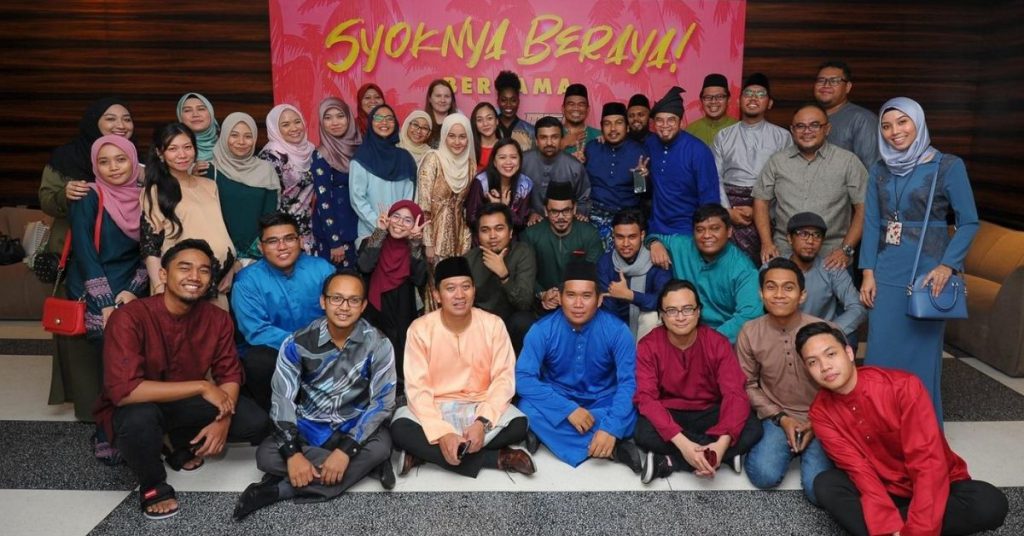
Editor’s Update: The 200 figure in the title is from the total of 251 countries as well as uncategorised territories, autonomies and islands, as recognised by the United Nations.
The startup in question is IX Telecom, founded by Noor Mohd Helmi Nong Hadzmi and Mohd Amzari Tajudeen.
The pair met back in Multimedia University (MMU) where they were just roommates with an entrepreneurial spirit. Helmi understood that they needed experience before starting a company, but that didn’t stop them from trying.
In 2003, Helmi joined AtlasOne, a telco startup, but it folded just after two years of operating. Helmi then joined AirAsia to head the low-cost carrier’s network team. Back then, AirAsia only had 5 aircraft to its name and by the time he left, the company expanded to a fleet of 100 aircraft.
AirAsia was on the rise but he still had the itch to pursue his entrepreneurial dream of running a telecommunications company, and thus IX Telecom was born.
Connecting Companies Worldwide
IX Telecom is a company that provides connectivity, services and digital transformation to other companies around the world.
They’re also known as a Virtual Network Operator (VNO) and that means they don’t own any infrastructure. Instead, they work with 1,000 operators in over 200 different countries to provide customers with an internet connection.
Explain It: A VNO leases network towers and connections from network operators. A VNO then provides its customers with internet connection and services.
“IX was just a materialisation of my dream that I had in college. Now that I had the experience, I knew exactly what I needed to do to make my dream a reality,” said Helmi in an interview with Vulcan Post.

He said the name IX was an abbreviation for (I)nternet e(X)change as it is literally what IX Telecom does: providing internet and connectivity to others.
Right off the bat, Helmi realised that telecommunication infrastructure takes a lot of money and time to build, so they had to improvise. Taking a VNO model that worked overseas, he tweaked it to fit the local market.
In the early days of the company, it was very challenging—they were the new kids in town and their potential clients only had eyes for big names and international players.
So, they changed course to focus on Hong Kong and Singapore instead. Coincidentally, their first customer was a Malaysian company with a branch in Singapore.
Not Just A Location But Also A Co-Founder
And because they had to fly often, it made sense for them to set up shop in Cyberjaya, which is close to KLIA.
“Cyberjaya is a special place in our heart, almost like a co-founder of IX and we were among the first population in Cyberjaya. It’s nostalgic for us too because we studied here in MMU back in 1999 when it opened.”
Noor Mohd Helmi Nong Hadzmi, CEO and co-founder of IX Telecom
Helmi then said that Cyberjaya is Malaysia’s centre of innovation. With Cyberjaya as the first MSC Cybercity, it also equipped IX Telecom with amenities like Data Centres and Fibre Networks.
Cyberview (a Tech Hub Developer, spearheading the development of Cyberjaya) provided them with lucrative rental rates and Cyberview also helped out with marketing and branding of the company, getting them noticed by the public.
Aside from that, Helmi also joined programmes offered by MDEC or MaGIC, both of which are based in Cyberjaya too.
The team believes that Cyberjaya, their first location, has helped them grow to reach 200 countries worldwide.

Despite COVID-19, the company was able to expand their services and they’ve experienced a 91% annual revenue growth, and he expects the number to grow too.
Part Of A Nurturing Ecosystem
To be successful, Helmi said that the company had to be innovative and always learning.
“Working closely with telco and tech companies makes you realise that the state of technology is constantly changing. There is always a new type of technology being introduced into the market. So you need to always stay on top of things.”
The ecosystem in Cyberjaya nurtured people with the same mindset and that creates an ideal space for them to interact with tech and creative companies.
“Being close to such raw information from these companies made it possible to constantly evolve our products and services. Now, some of the companies here are already our clients. The calibre of companies based in Cyberjaya fostered a close-knit community because it was easy to communicate and exchange notes.”

IX Telecom also recently won a Life at Work award, thanks to the diversity and inclusion practices within the company.
“Cyberjaya is also an inclusive and diverse place for all races and the atmosphere has the same vibes that we have in IX Telecom.”
Helmi also won the CEO Champion award of Life at Work for his inclusive leadership to the management and employees.

But their work is not complete, IX Telecom just recently launched their Software Defined-Wide Area Network (SD-WAN) solution and they’re venturing into digital transformation too.
He also has a few choice words for companies looking to venture into telecommunications: “It’s a diverse and dynamic field. Keep innovating and tailoring your products to cater to new business needs that keep arising.”
- Find out more about IX Telecom here.
- To learn more about Cyberview, click here.
- If you require help with setting up your business in Cyberjaya or would like to grow your investment in the smart city, contact the Cyberjaya Investment & Services Centre (CISC), located in RekaScape. You can also call/WhatsApp +603-8750 5170 or email cisc@cyberview.com.my.
- You can also follow them on Instagram @CyberjayaBuzz and @CyberviewMY
Also Read: This M’sian Company Wants To Make The Document You Signed Online Tamper-Proof, Here’s How
Featured Image Credit: IX Telecom
Their Movie Made RM30 Mil In 2019, Here Is A Crucial Factor Behind This Studio’s Success
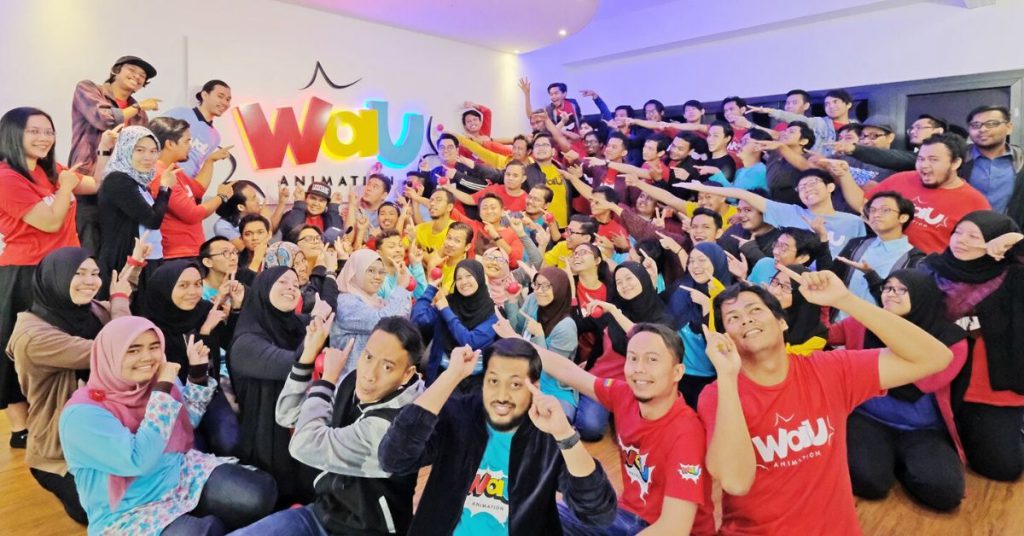
2019 was a fairly good year for movies. We had a few sequels and standalone movies that were outstanding. We had the Avengers: Endgame, Joker, Parasite, and Frozen 2 to name a few.
But, the local movie scene did not disappoint either. In a review by The Star, three of their top five local movies were animated movies, BoBoiBoy Movie 2, Upin & Ipin: Keris Siamang Tunggal and last year’s #1 movie in the local box office—Ejen Ali: The Movie.
Ejen Ali: The Movie was Malaysia’s top-grossing local movie for 2019, and it raked in over RM30 million since its release. This puts the movie in the 3rd place of Malaysia’s best-selling local film after Munafik 2 and Hantu Kak Limah.
Starting out as a TV show, Ejen Ali’s stories revolve around a teenage boy, Ali, who had his world turned upside down as he was recruited as a spy in the fictional city of Cyberaya—an ode to the nation’s smart city of Cyberjaya.
The Result Of A Life Built In Cyberjaya
Ejen Ali is the brainchild of Usamah Zaid, the founder of WAU Animation. As a graduate of MMU Cyberjaya, he chose to start his business in Cyberjaya thanks to a 2-year incubator programme with MDEC, which is based in the smart city too.

By then, his studio partners and employees were already based around Cyberjaya, and it made sense to stay close to MDEC, even after graduating from the programme because of the connections and facilities they offered.
And they’re not the only animation studio based in that location. Usamah believes that the presence of other major animation companies has been a benefit as well.
Despite being competitors, the working environment in Cyberjaya enabled them to meet up often, share ideas and pointers with each other, fostering a sense of camaraderie between them.
“Personally, I’ve definitely benefited from learning how other studios run their business.”
Being near to his old MMU stomping grounds, it allowed him to have easier access to the talents coming out from there as well. Usamah, as a proven success story of his alma mater, shows that MMU is capable of producing competent and skilled talent in the Digital Creative industry.
Some of the earliest hires for the company were students from MMU and 30% of their team members were graduates of the university too.
Building A Name For WAU Animation
In 2014 when WAU Animation was just starting out and had no name, Cyberview (a Tech Hub Developer, spearheading the development of Cyberjaya), hosted an interview session for animation teams with the media and that helped them massively.
Cyberview also puts in the effort to promote the animation scene; WAU Animation and other animation companies are often featured on billboards, promo videos and events.

Not only that, but WAU Animation also have access to facilities and technology that’s modern and state of the art. These are all the instruments required to produce animation materials that are on par with global standards.
While the rise of the internet and social media helped with the growth and notability of the company, he said that the government’s support had been vital too.
Usamah also believes that Cyberjaya has a wonderful atmosphere.
I love how Cyberjaya is not hectic. It’s modern, yet calm. You have a lot of room to breathe, yet plenty of activities you can do. I think it’s a very conducive place to get inspired.
Usamah Zaid, Founder of WAU on the atmosphere of Cyberjaya
How Real-Life Cyberjaya Influenced Fictional Cyberaya
In Ejen Ali, the fictional Cyberaya is technologically advanced and high-tech gadgets were used in daily life. Usamah Zaid said that when they were world-building, they didn’t want to just settle with a simple contemporary setting.
They wanted to build a world that was futuristic and their fictional Cyberaya was actually a homage to the real-life Cyberjaya, as they see the real township becoming more technologically advanced. It’s also the closest thing in real life depicting a futuristic lifestyle.
Get To Know Cyberjaya: Did you know it’s been 23 years since it was launched as the nucleus of the Multimedia Super Corridor (MSC) development? In fact, they’ve recently celebrated their anniversary last month too.
Also known as the Capital of Creation, its geographical layout has a lot to do with how Cyberview approaches innovation. Cyberjaya is divided into 4 dynamic zones and in the South district, is where 3 emerging tech clusters are anchored—Smart Mobility, Smart Healthcare, and Digital Creative.

Get To Know Cyberjaya: Smart Mobility features companies that are looking for ways to improve the way we travel. They’re also looking at innovations for MaaS (Mobility as a Service) and they’re also building EV and AV (Electric and Autonomous Vehicles).
Smart Healthcare features companies that look at improving healthcare, our well-being and our quality of life. Leveraging on the bountiful talent of nearby universities, they look to improve on current technology through telemedicine, and R&D through IoT (Internet of Things).
Digital Creative houses companies that are focusing on delivering creative solutions. Here you can find companies developing games, 2D and 3D animation, Virtual Reality, and esports.
Besides being technologically advanced, people often think that Cyberjaya is far from the city. Although quite a commute from the city centre, Usamah says this is not a problem.
“Cyberjaya is very accessible with the MEX and ELITE highways. Another popular misconception I think is people saying how bare Cyberjaya is and that there’s nothing there. It is true maybe 10–15 years ago, but Cyberjaya has developed a lot since then.”
Cyberjaya is now home to some of Malaysia’s most recognisable brands such as Ejen Ali and a host of other tech MNCs in the same area.

The Launchpad For Creatives
Aside from the benefits that Usamah has mentioned, Cyberjaya is an ideal location to start your company, thanks to a robust and holistic tech ecosystem that is the backbone of the city.
They come equipped with attractive incentives, have quick access to a wide variety of talents, and just listed above, they have a high concentration of tech-based companies too.
Cyberjaya is also home to a large number of startups and they also offer easy access for governmental bodies such as MDEC and MaGIC, along with a host of other benefits for startups such as accelerator programmes, mentorship, and co-working spaces.
Are you a startup looking for a launchpad? Pilot your solutions in Cyberjaya and sign up for the Cyberview Living Lab Accelerator Programme (CLLA) today. Closing date is 30 June 2020. Hurry!
We also asked Usamah if a company should look to relocate to Cyberjaya and he said this: “If it suits your industry, come join the fun.”

He also had some choice advice for some of the up-and-coming animators: “If you’re serious, be sure to start with a good company. Being in the wrong environment can be detrimental to your passion. This is why I chose Cyberjaya.”
- Find out more about Cyberview here.
- For more info on WAU Animation, click here.
- If you require help with setting up your business in Cyberjaya or would like to grow your investment in the smart city, contact the Cyberjaya Investment & Services Centre (CISC), located in RekaScape. You can also call/WhatsApp +603-8750 5170 or email cisc@cyberview.com.my.
- You can also follow them on Instagram @CyberjayaBuzz and @CyberviewMY
Also Read: 5 Benefits Local Entrepreneurs Can Get From Alibaba Cloud
Featured Image Credit: WAU Animation

